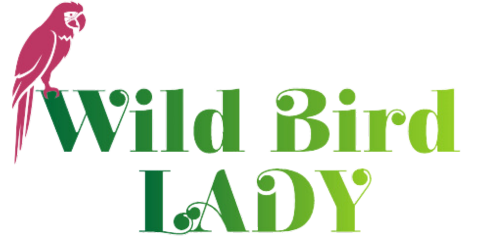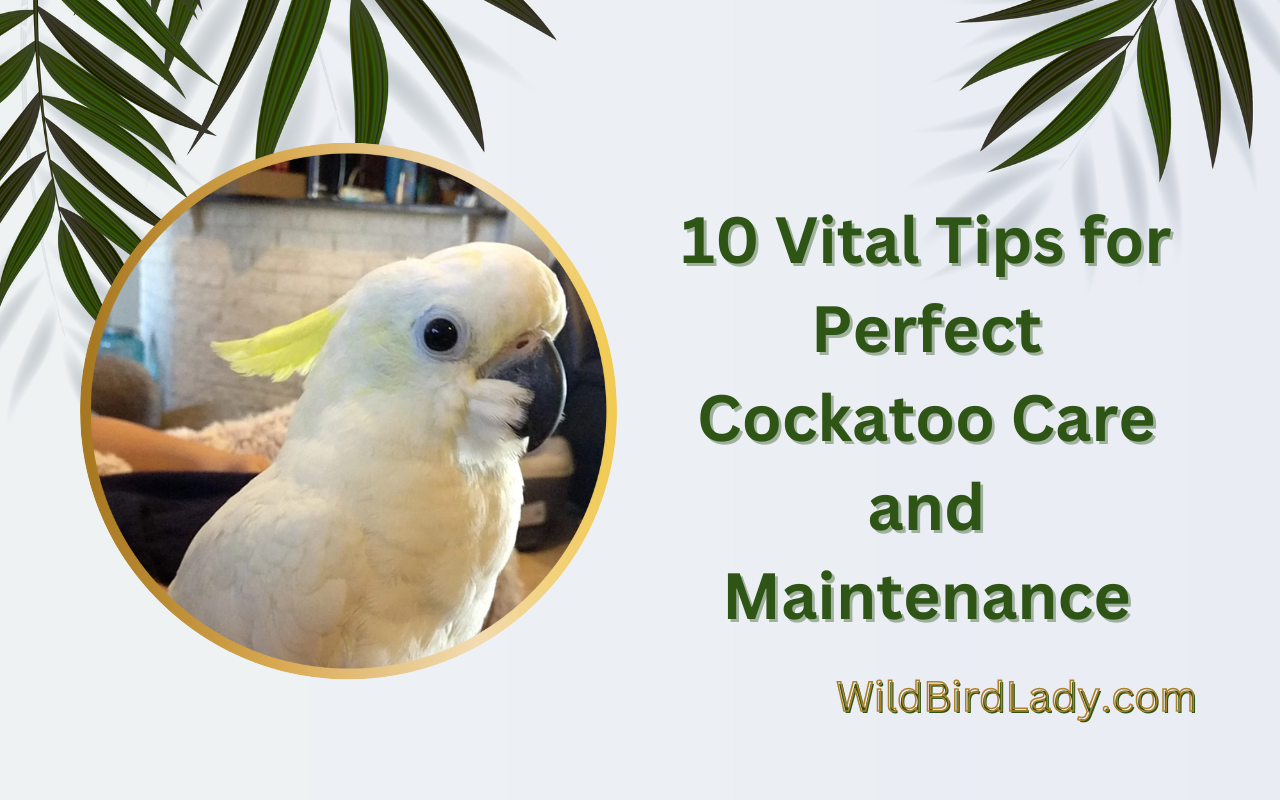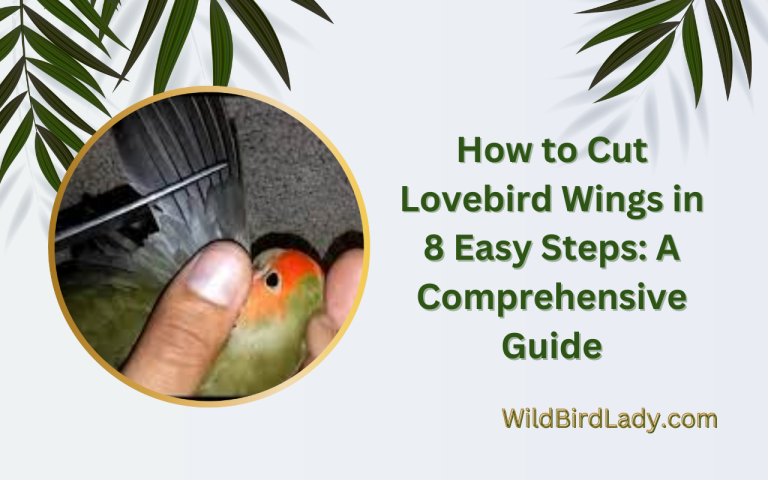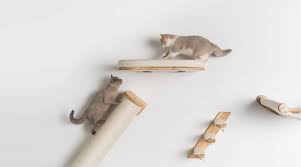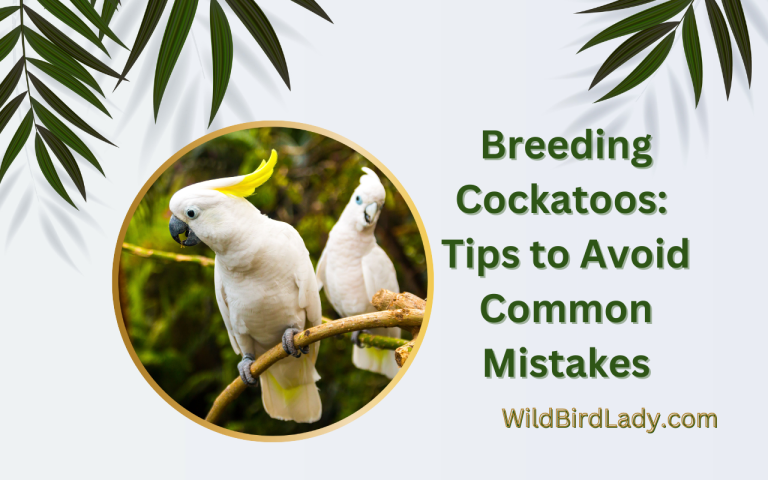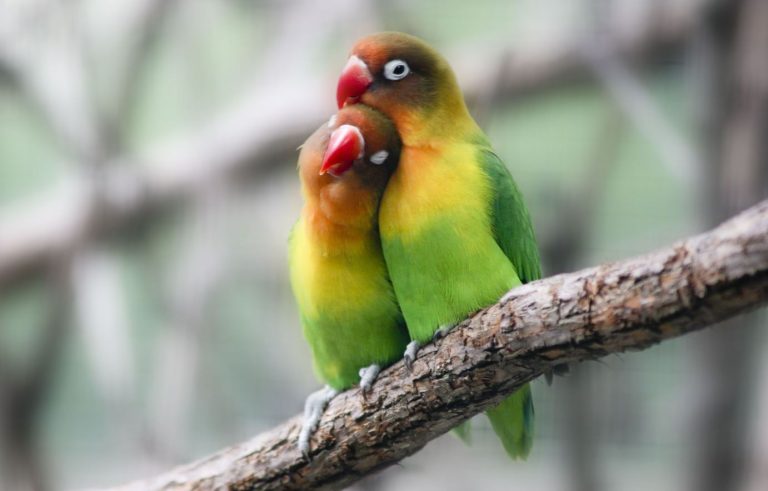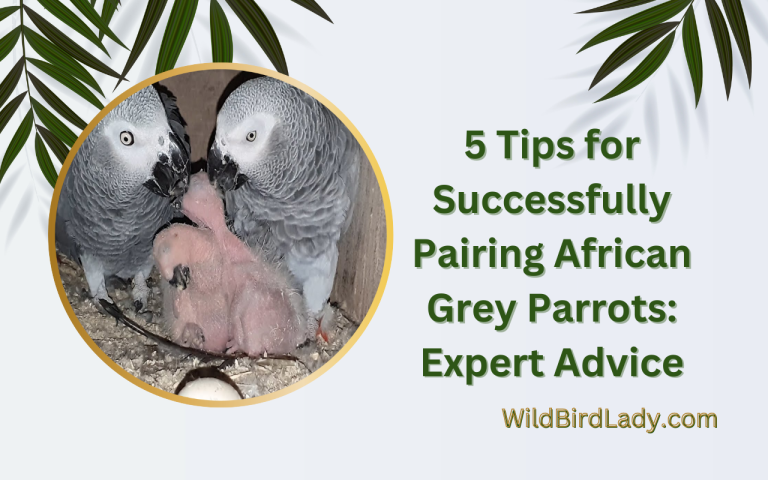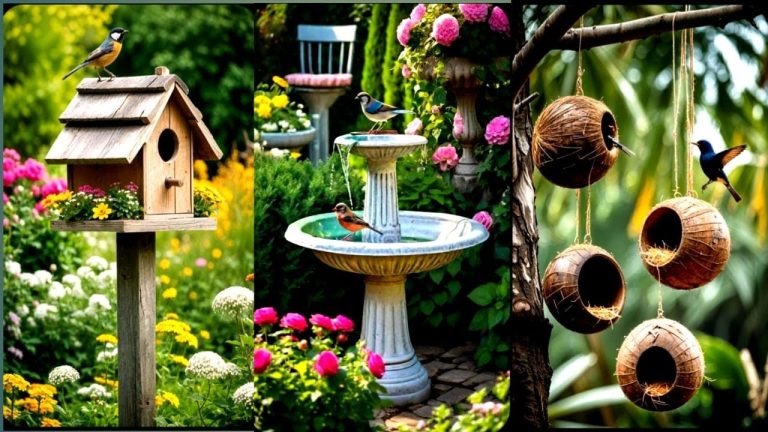10 Vital Tips for Perfect Cockatoo Care and Maintenance
Cockatoos require a lot of care and maintenance, and as an owner, you need to ensure that you are meeting all their needs. Here are ten essential tips to help you provide the best possible care for your cockatoo.
Cockatoos are popular pets due to their playful, social, and affectionate nature, but they also require a lot of attention and careful maintenance. As an owner, you must maintain and keep their living space clean, provide them with a proper diet, and ensure their overall health and wellbeing.
Furthermore, you need to understand their behavior and provide mental stimulation to keep them active and happy. In this article, we will provide ten essential tips to help you care for and maintain your cockatoo, allowing you to provide the best possible life for your feathered friend.
Credit: www.amazon.com
Understanding Cockatoos And Their Needs
Cockatoos are unique pet birds with specific needs that must be met to keep them healthy and happy. Understanding their behavior, personality, and socialization requirements is vital for their well-being. Here are some key points to consider:
- Cockatoos are highly social birds that bond closely with their owners and thrive on interaction and attention.
- They are intelligent and active, requiring plenty of mental and physical stimulation to prevent boredom and behavioral problems.
- Cockatoos are notorious for their persistent screaming, which can be a significant issue for apartment dwellers and those with neighbours close by.
- These birds require a considerable amount of care and dedication, and their lifespan can range from 20 to 70 years.
Importance Of Researching And Understanding The Species
It is crucial to research and understand the specific needs of the cockatoo species before bringing them into your home. Here are some key points to consider:
- Each type of cockatoo has different behavioral tendencies, personality traits, and care requirements.
- Cockatoos have a reputation for being difficult pets due to their demanding nature and socialization needs.
- Researching the breed and talking to experienced owners before committing to a cockatoo is essential for the bird’s well-being and your ability to provide proper care.
Discussion On Types Of Cockatoos
There are 21 different species of cockatoos, each with its unique characteristics. Here are some key points to consider:
- The most common types of cockatoos kept as pets are the umbrella, sulphur-crested, and rose-breasted cockatoos.
- The moluccan cockatoo is one of the largest species and requires a spacious living environment.
- The goffin’s cockatoo is a smaller type that is known for its curious and active nature.
- Some cockatoos, such as the bare-eyed cockatoo, are better-suited to experienced bird owners due to their complex care requirements.
- Choosing the right type of cockatoo for your home environment and lifestyle is crucial for ensuring the bird’s well-being and your ability to meet its specific needs.
By understanding cockatoos and their needs, you can provide a safe, comfortable, and happy life for your feathered friend. Remember always to research, provide plenty of stimulation, socialization, and make an informed choice on the type of cockatoo that is right for you.
Creating The Perfect Cockatoo Environment
Cockatoos are very social creatures and require an engaging, safe and stimulating environment. If you want to provide your feathered friend with the perfect home, here are a few things you need to consider:
Explanation Of The Necessary Elements Required For A Cockatoo’S Cage
A cockatoo’s cage must be roomy, safe, and comfortable. Here are some essential elements you must include:
- Perches – your feathered friend will require at least two perches to rest on and play. Look for perches made of natural materials like hardwood or manzanita branches.
- Toys – fill your cockatoo’s cage with a variety of toys. Different textures and colours are ideal as they will stimulate your feathered friend’s senses and encourage him to explore and play.
- Bedding – your cockatoo’s cage should be lined with non-toxic bedding, such as paper or aspen shavings. Avoid using any cedar, pine, or scented bedding as they can be harmful to your pet’s health.
Tips On Setting Up A Cage In A Way That Caters To A Cockatoo’S Natural Behaviors
To ensure your cockatoo’s well-being, it’s essential to set up his cage in a way that caters to his natural behaviours. Here are some tips that will help:
- Flight – cockatoos are great fliers, and they need a cage that allows them to fly and exercise their wings. Make sure that your feathered friend’s cage is large enough to accommodate his wingspan.
- Foraging – in the wild, cockatoos are foragers. You can tap into this natural behaviour by placing food bowls in different parts of his cage, hiding treats, and providing foraging toys to keep him entertained.
- Play – cockatoos are highly intelligent, social and playful birds. One way to keep your feathered friend entertained is to rotate his toys every other day. Your cockatoo will enjoy the novelty of new toys and playthings.
Advice On Where To Place The Cage Within A Home
When placing your cockatoo’s cage within your home, keep in mind the following:
- Lighting – cockatoos need exposure to uva and uvb rays to keep healthy. Place your feathered friend’s cage near windows that allow good natural light.
- Noise levels – cockatoos are highly vocal birds, so place their cage in a room where you and your family spend most of the time to enable socialization. Avoid placing their cage near loud appliances or machinery that can disrupt your feathered friend’s sleep.
- Temperature – cockatoos thrive in temperatures ranging from 70-80 degrees fahrenheit. Avoid placing their cage in areas that experience temperature extremes or fluctuations such as drafty doorways or windows.
By following these tips, you will ensure that your feathered friend is safe, happy, and healthy. Remember, a comfortable and stimulating environment is crucial to your cockatoo’s overall well-being.
Feeding And Hydration
Cockatoos are wonderful pets, and like all living creatures, they need to be well-fed and hydrated to stay healthy. In this segment, we will dive deep into the essentials of feeding and hydration that you need to know as a cockatoo owner.
Discussion On The Dietary Requirements Of Cockatoos, Including Types Of Food, Ideal Portions, And Frequency Of Feedings.
Cockatoos are omnivorous and require a balanced diet consisting of pelleted food, vegetables, fruits, and occasionally, nuts. Here are some key points to remember when feeding your feathered friend:
- Pelleted food should make up the bulk of your cockatoo’s diet. Choose a premium quality brand with a range of flavors and textures to keep your bird interested.
- Vegetables such as dark leafy greens, carrots, and sweet potatoes are an excellent source of vitamins and minerals. Offer them in chopped or grated form.
- Fruits like apples, berries, and melons offer additional nutrients and make great treats. Always remove seeds and pits as they are toxic to birds.
- Nuts, especially almonds and walnuts, can be offered occasionally as a source of healthy fats.
- As a general guideline, offer 1/4 to 1/2 cup of food per day, split into two meals.
- Fresh water should be provided at all times, either in a bowl or a sipper tube.
Advice On The Best Types Of Food And Water Containers To Use, And How Frequently They Should Be Cleaned.
Choosing the right food and water containers is crucial to your cockatoo’s health and safety. Here’s what you need to keep in mind:
- Use ceramic or stainless steel dishes for food and water, as plastic containers can harbor bacteria and scratches that can harbor germs.
- Select containers that are the appropriate size for your bird. The food bowl should be large enough to accommodate the daily serving, while the water dish should be shallow enough to avoid accidental drowning.
- Clean the containers daily with warm water and mild soap, or in the dishwasher if they are dishwasher safe.
- Discard any uneaten food or spoiled water immediately to avoid contamination.
- Replace food and water containers every 6 to 12 months, depending on wear and tear.
Tips On How To Ensure A Balanced And Healthy Diet For Cockatoos.
Providing a balanced diet for your cockatoo is essential to their overall health and well-being. Here are some additional tips to help you achieve that:
- Vary the types of food you offer to keep your bird interested and provide a range of nutrients.
- Avoid feeding your bird fatty, sugary, or salty human foods, as they can lead to obesity and health problems.
- Offer fresh food daily, and remove any uneaten food after a few hours to prevent spoilage.
- If in doubt about what to feed your bird, consult a veterinarian or a reputable breeder for advice.
- Finally, observe your cockatoo’s eating habits and adjust the portions and types of food accordingly. A healthy and happy bird will have a good appetite and maintain a steady weight.
Remember to give your cockatoo plenty of love and attention as well as good nutrition, and you’ll have a devoted and delightful companion for years to come.
Health And Hygiene
Explanation Of The Signs Of A Healthy Bird, Including Physical Appearance, Mood, And Behavior.
A healthy cockatoo is essential for a happy and long life for your pet. Here are some key signs to look out for:
- Physical appearance: Your cockatoo should have healthy feathers, with no bald spots, flaking or redness on the skin. Their eyes should be bright and clear, with no discharge or crustiness around them. Their beak and nails should be smooth and not overly long, which can indicate a lack of activity and cause discomfort to the bird.
- Mood: A healthy cockatoo will be inquisitive, alert, and active. They should be vocalizing and making noise at appropriate times and engaging in playtime with their toys.
- Behavior: Your cockatoo should be eating and drinking regularly, with their droppings in normal consistency and color. They should not be fluffed up or lethargic, both signs of illness.
Discussion On Common Health Problems That Can Occur In Cockatoos, And Advice On How To Prevent Them.
There are several health problems that can occur in cockatoos that you should be aware of:
- Feather plucking: Feather plucking is a common behavior in cockatoos that can be caused by a stressful environment or lack of a proper diet. Provide enough mental stimulation for them, remove any tight clothing and provide them a balanced diet.
- Bacterial infections: Bacterial infections can be caused by unhygienic conditions and poor diet. Cleaning the cage regularly and providing a healthy and balanced diet can greatly reduce the risk of bacterial infections.
- Psittacine beak and feather disease: A viral disease that can cause beak, feather and immune system abnormalities. Ensure that you purchase your bird from a reputable breeder and keep your cockatoo away from other birds to avoid infection.
Keeping your cockatoo healthy requires a proactive approach in their care, which includes a balanced diet, hygienic conditions, and proper mental stimulation.
Tips On How To Maintain A Hygienic Environment For A Cockatoo’S Cage, Including Cleaning Schedules, Disinfectants, And Potential Hazards To Avoid.
Maintaining a clean environment for your cockatoo is essential to prevent the spread of bacteria and disease. Here are some tips to keep your bird’s cage clean and hygienic:
- Clean the cage at least once a week, including the perches, food, and water dishes. Wash the dishes with warm, soapy water, then rinse and dry them thoroughly.
- Use a safe disinfectant to clean the cage. Avoid using harsh chemicals that can be harmful to your bird’s health. A diluted bleach solution can be used at a ratio of one tablespoon to one gallon of water.
- Remove any waste and uneaten food daily to prevent the spread of bacteria and disease.
- Avoid using sandpaper perch covers as they can cause foot injuries.
- Don’t allow your cockatoo to come into contact with other birds to avoid potential cross-contamination.
- Ensure that your cockatoo has enough space in their cage and it is properly ventilated.
By implementing these tips and keeping your bird’s health a top priority, you can ensure that your cockatoo is happy and healthy for years to come.
Socialization And Exercise
Adding a new cockatoo to your home is an exciting experience. To support your feathered friend’s wellbeing, socializing and exercise are vital. Here are some tips on how to promote both:
Advice on how to socialize a new cockatoo, including the importance of building trust and establishing routines:
- Start by building trust with your cockatoo by providing them with a safe and comfortable environment.
- Establish a routine for feedings, playtime, and rest to help your bird feel secure and comfortable in their new environment.
- Spend time with your bird daily, both inside and outside their cage. Offer treats, sing, and talk to them in a calming voice.
- Once your bird has built up some trust with you, introduce them to new people in small doses. Encourage others to speak to your bird in a soft, comforting tone and offer treats.
- Be patient! Building trust and socializing a new bird can take time, but the results are well worth the effort.
Suggestions on activities and toys that promote physical activity and mental stimulation for a cockatoo:
- Offer your bird a variety of toys that encourage movement and mental stimulation, such as puzzle toys and foraging toys.
- Play fetch with your bird using small toys or treats, encouraging them to flap their wings and catch or retrieve the objects.
- Consider creating a play area or gym for your bird outside their cage, equipped with ropes, ladders, and perches to encourage movement and activity.
- Rotate your bird’s toys regularly to keep them interested and engaged.
Discussion on the potential benefits of allowing a cockatoo to fly, and how to ensure their safety while doing so:
- Allowing a cockatoo to fly can provide physical exercise, mental stimulation, and promote natural behaviors.
- To ensure the safety of your bird, make sure the area is clear of dangerous hazards such as ceiling fans, mirrors, and windows.
- Consider clipping your bird’s wings, trimming their flight feathers, or using a harness to prevent them from flying too high or accidentally escaping.
- Make sure your bird has a strong recall command and never leave them unattended while they are flying.
By focusing on socialization and exercise, you can help ensure that your cockatoo is healthy, happy, and well-adjusted in their new home.
Training And Behavior
Cockatoos are intelligent birds that require training and socialization to live happily and healthily. Here are some tips on how to train a cockatoo, address common behavioral issues, and communicate with them effectively.
Tips On How To Train A Cockatoo, Including Positive Reinforcement Techniques And Setting Boundaries.
Training a cockatoo can be a challenging and time-consuming process. However, positive reinforcement techniques such as rewarding good behavior with treats or praise can make training an enjoyable experience for both the bird and the owner. Here are some tips on how to train a cockatoo:
- Start with basic commands like “step up” and “step down.”
- Always use positive reinforcement to reward good behaviour.
- Avoid yelling or punishing the bird for bad behavior as it may cause fear or aggression.
- Set clear boundaries and stick to them.
Advice On How To Address Common Behavioral Issues In Cockatoos, Such As Biting, Screaming, And Aggression.
Cockatoos can develop behavioral issues such as biting, screaming, and aggression due to fear or stress. Here is some advice on how to address these issues:
- For biting issues, redirect the bird’s attention by offering toys or treats.
- To address screaming, identify the root cause and try to provide a solution. For instance, if the bird is screaming due to boredom, provide toys and other stimulating activities.
- In cases of aggression, consult a bird behaviorist or veterinarian immediately.
Discussion On The Importance Of Understanding A Cockatoo’S Body Language And Vocalizations For Effective Communication.
Understanding a cockatoo’s body language and vocalizations is essential for effective communication between the bird and its owner. Here are some tips on how to interpret a cockatoo’s body language and vocalizations:
- Observe the bird’s body posture, feathers, and eye movements. For example, if the bird’s feathers are raised, it may indicate excitement, fear or aggression.
- Learn to distinguish between different vocalizations such as screams, chirps, and murmurs. For instance, a cockatoo’s scream may indicate fear or discomfort while chirps and murmurs may indicate happiness or contentment.
- Practice mimicking the bird’s vocalizations to establish a bond and promote a sense of trust between the bird and its owner.
Training and socialization are critical aspects of cockatoo care and maintenance that should not be overlooked. By following these tips and guidelines, you can help ensure that your cockatoo is happy and healthy.
Traveling With A Cockatoo
Advice On How To Prepare A Cockatoo For Travel, Including Tips On Traveling By Car Or Plane.
Traveling with a feathered friend can be fun, but it requires some preparation. Follow these tips to ensure that your cockatoo stays comfortable and safe during travel:
- Before your trip, get your cockatoo used to a carrier or traveling cage by placing it in the carrier at home for short periods each day.
- Provide familiar toys and food to provide a sense of security, warmth, and comfort.
- Schedule the trip at a time when the cockatoo is not agitated, such as after a meal or in the evening.
- For long trips, stop frequently to give your cockatoo some rest and drink water.
- For traveling by car, consider using a seatbelt for the carrier or traveling cage to reduce injury in the event of an accident.
- For traveling by plane, choose a carrier or traveling cage that meets airline regulations.
Suggestions For Items To Bring Along On Trips, Such As Food, Toys, And Familiar Objects.
Bringing along familiar and comforting objects can keep your cockatoo calm and happy while traveling. Here are some essential items that you should never forget to pack:
- Food and water: Ensure that you provide enough food and water for your feathered friend, especially when traveling by plane, as it may not be possible to get fresh food during the travel.
- Familiar toys: Your cockatoo will feel more relaxed if you bring along familiar toys and perches that are located in its cage.
- First aid kit: In case of an emergency, it’s better to be prepared with a first aid kit that includes antiseptic solution, nail clippers, tweezers, and other necessary items.
- A lightweight blanket or towel: Covering the cage may help reduce stress and anxiety in your cockatoo.
- An extra travel carrier or cage: It’s always better to have a spare carrier or cage in case of a sudden need.
Discussion On How To Minimize Stress And Discomfort For A Cockatoo While Traveling.
Traveling can be very stressful for cockatoos, but there are some steps that you can follow to keep them comfortable and relaxed:
- Before you leave your home, understand your cockatoo’s personality to see if it gets anxious when exposed to new situations.
- Ensure that the carrier or traveling cage is well-ventilated, spacious, and clean, and provides enough room for your cockatoo to move around.
- Keep a watchful eye on your cockatoo during the trip, monitoring its food and water intake, body language, and general mood to spot any signs of stress or discomfort.
- Provide some comfort items like familiar food, toys, or a perch, in the traveling cage to help your cockatoo feel secure.
- Avoid exposing your cockatoo to loud noises or changes in temperature, as these can cause added anxiety.
- Speak to your cockatoo in a soft and reassuring tone, petting and cuddling them when possible.
With these tips, you can now travel with your cockatoo comfortably, providing a relaxing experience for everyone involved.
Frequently Asked Questions Of 10 Essential Tips For Cockatoo Care And Maintenance
How Long Do Cockatoos Live?
Cockatoos can live up to 70 years in captivity with proper care.
What Do Cockatoos Eat?
Cockatoos thrive on a diet of fruits, vegetables, nuts, and pellets.
What Are The Common Health Problems For Cockatoos?
Cockatoos are prone to feather plucking, vitamin a deficiency, and beak malocclusion.
Can Cockatoos Talk?
Yes, cockatoos are excellent mimics and can learn to mimic words and phrases.
Do Cockatoos Need Toys?
Yes, cockatoos need plenty of toys to keep them entertained and mentally stimulated.
How Often Should I Bathe My Cockatoo?
Cockatoos should be bathed at least once a week to maintain healthy feathers.
Conclusion
Taking care of a cockatoo is not just a responsibility, but it’s a commitment. It takes time, patience, and dedication to provide your feathered friend with excellent care and maintenance. From providing fresh water and healthy food to offering a clean environment and social interaction, these steps ensure your cockatoo’s well-being and longevity.
Remember to keep an eye on your pet’s behavior and communicate with a vet when necessary. Grooming and handling for your bird are essential and should not be neglected. Incorporating the tips mentioned in this post will help you provide the best care for your cockatoo.
With proper care and attention, your cockatoo can be a joyful and loving part of your life for many years to come.
